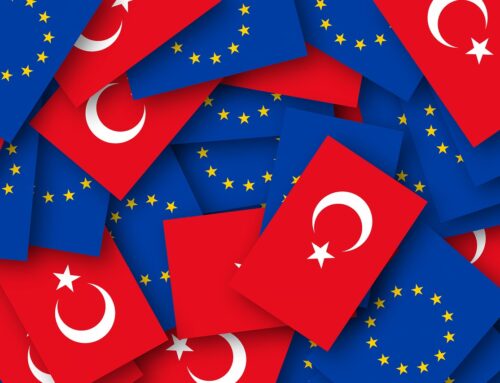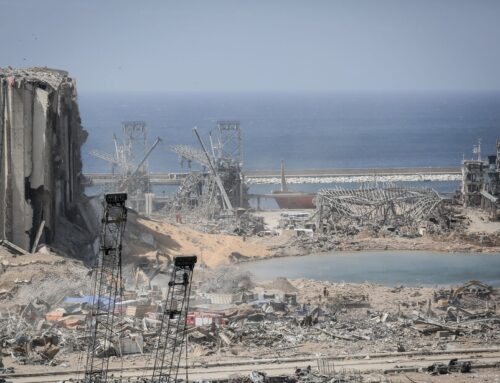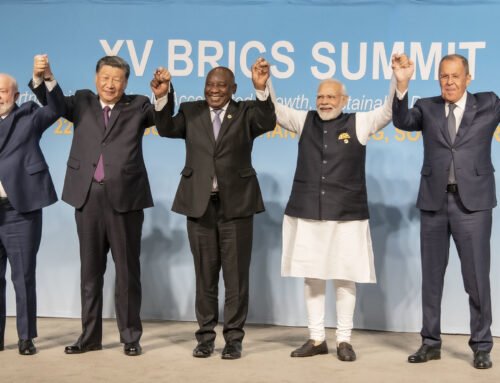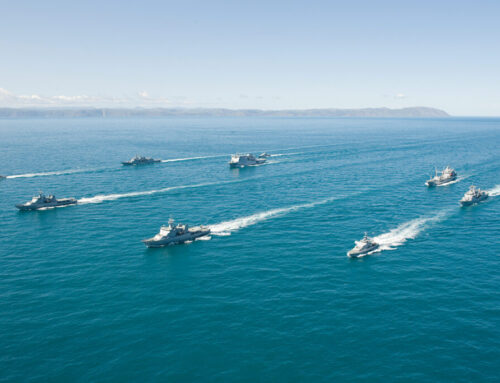Ukraine’s Way to the European Union – is There a Chance for a Success Story?
Autor foto: Domena publiczna
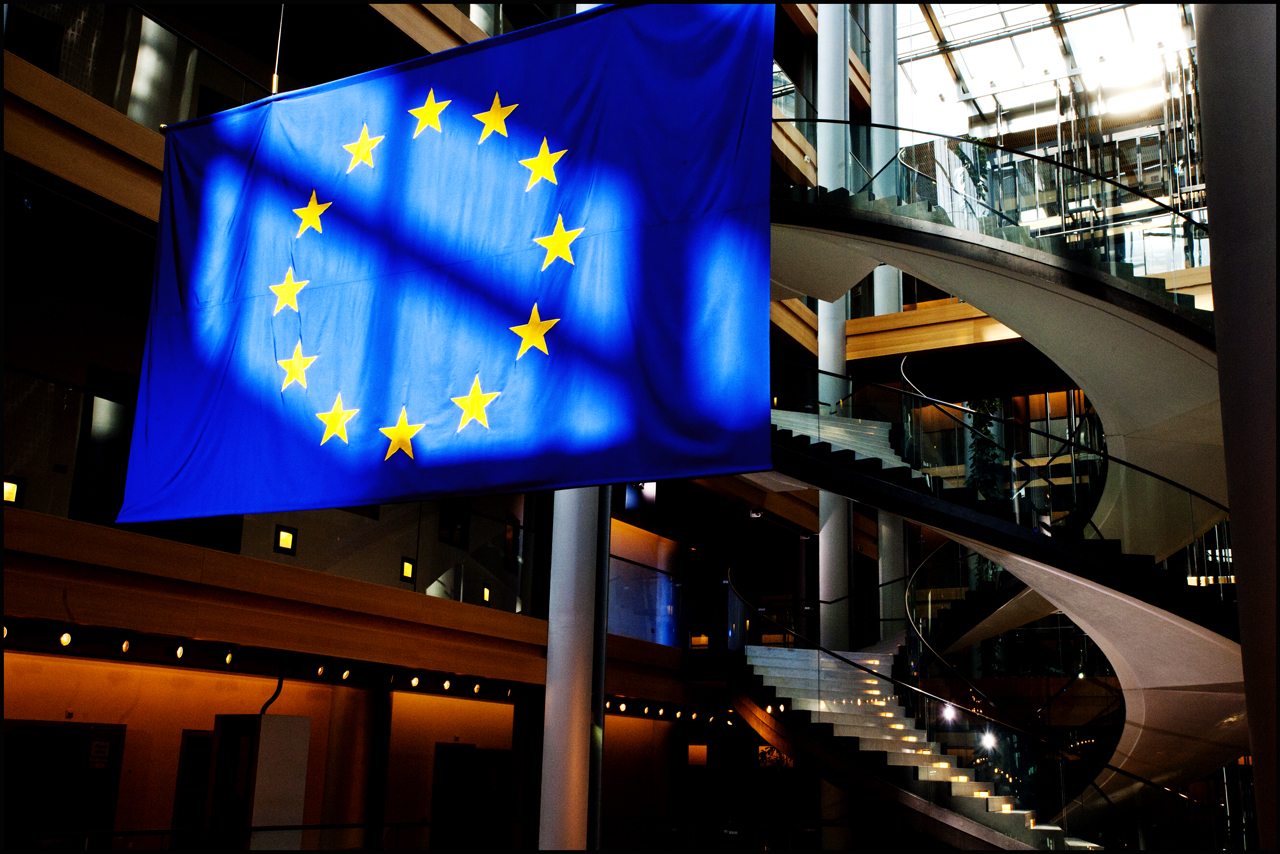
Ukraine’s Way to the European Union – is There a Chance for a Success Story?
September 5, 2022
Author: Professor Przemysław Żurawski vel Grajewski,
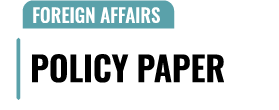
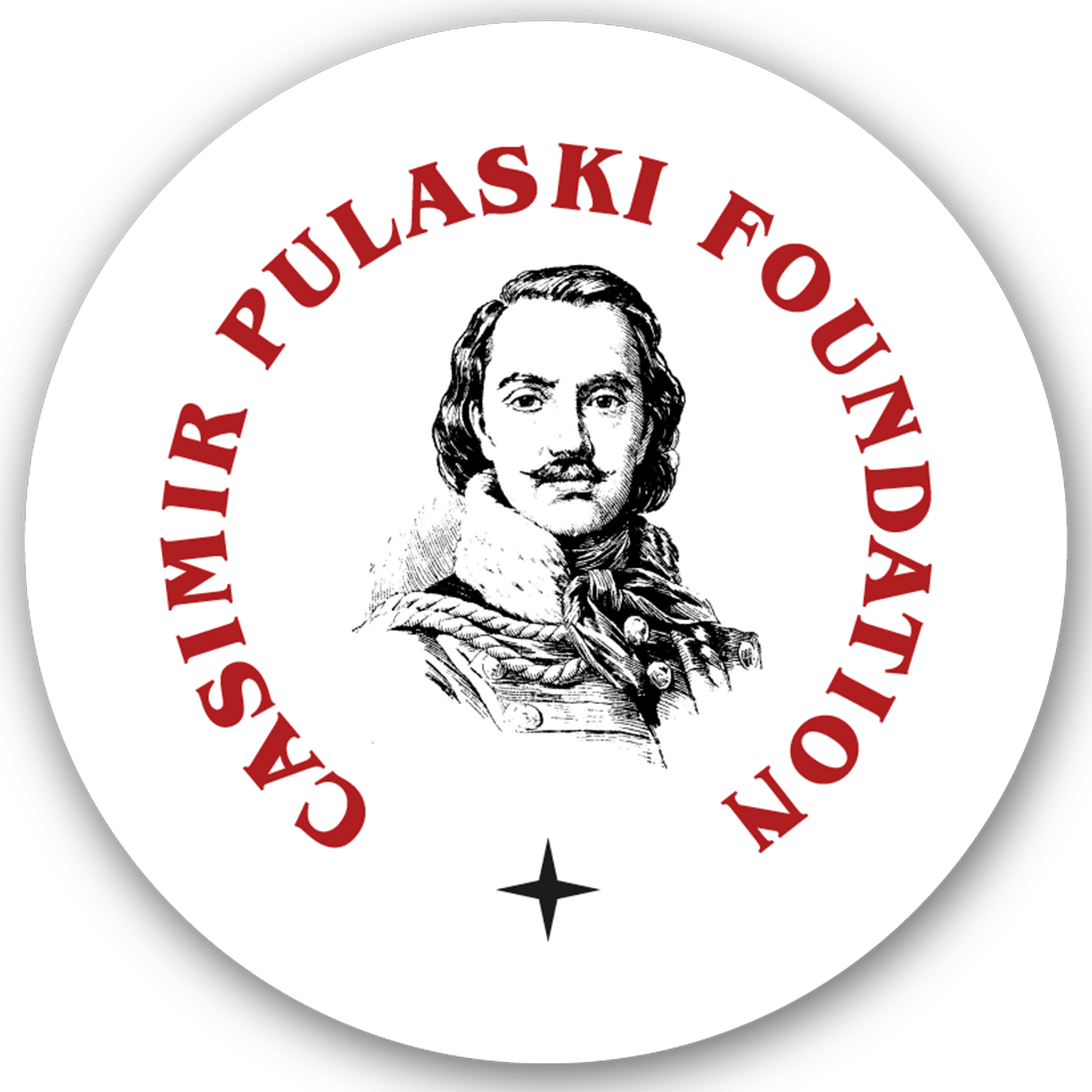


Ukraine’s Way to the European Union – is There a Chance for a Success Story?
Autor foto: Domena publiczna
Ukraine’s Way to the European Union – is There a Chance for a Success Story?
Author: Professor Przemysław Żurawski vel Grajewski,
Published: September 5, 2022
Pulaski Policy Paper no 16, September 5, 2022
On June 23rd, 2022, at the EU summit in Brussels Ukraine has been granted the EU candidate status. The decision was fully supported by the European Parliament, which has approved it with an overwhelming majority that has voted in favour of Kyiv (529:45, with 14 abstentions). These are the acts that have been longing for for last 27 years (since the signing of the PCA – Partnership and Cooperation Agreement UE-Ukraine on June 14th, 1994) and many times supported by both Poland and Ukraine – lately in a joint declaration by the Presidents of the two countries on May 7th, 2021. The questions remains are those decisions the genuine turning point in the Ukrainian way to the EU membership or is it just an unbinding declaration, adopted due to the political necessity to demonstrate the EU support for Ukraine fighting bloody defensive war against the full-scale Russian aggression – the one Europe has not experienced since 1945?
The history of the Ukraine-EU relations
The formal Ukrainian way to the European Union started with the above mentioned PCA, which was the first one concluded between the EU and one of the post-soviet states. Thus, the beginning seemed to be a promising one. The fundamental principles of the EU policy towards Ukraine were settled down in the EU Council decision of November 28th, 1994, where the Council stressed the necessity of the quick implementation of the PCA. Despite that fact the PCA was put into force not earlier but on March 1st, 1998. The diplomatic offensive of the Ukrainian diplomacy based on two presidential decrees on Ukraine’s European Integration and leaded by minister Borys Tarasiuk was stopped soon in late 1999 when the Finnish presidency of the EU issued the so called Saariselkä document asking the EU Member States about the limits on the Union’s enlargement. The answer given in a joint statement by German and French foreign ministries in a report published on the future border of a united Europe ended the Ukrainian illusions in July 2000. Berlin and Paris declared that admitting Ukraine to the EU would mean isolating Russia. That attitude of the EU leading powers to Ukraine and generally to the entire eastern neighbourhood of the enlarged EU have been acknowledged since then many times. The principle defined in the Franco-German declaration ruled the EU Neighbourhood Policy of 2002, the Black Sea Synergy of 2007 and the Eastern Partnership of 2009 and had an impact on its consecutive summits of 2009, 2011 and 2013, as well as on the process of the creation of the EU-Ukraine Association Agreement of 2014/2017. The principle “not to irritate Moscow” continued to guide the EU’s policy even after Russia’s aggression in Ukraine of 2014. It is for the sake of that principle that the EU-Ukraine Association Agreement has been divided into two parts, signed separately at long intervals. Nevertheless, Ukraine achieved some important goals on its way to the EU: Deep and Comprehensive Free Trade Area – DCFTA, visa free regime (2017), and the EU-Ukraine Common Aviation Area Agreement of 2021. Those facts do not question however the general reluctance of the EU to enlarge.
That history shows that the Franco-German political line vis a vis Ukraine and Russia that shapes the EU policy on that issue has a long tradition and a stable paradigm. One can doubt it has been changed by the virtue of the latest developments and declarations. The same may be said about several smaller states of the western part of the EU where the enlargement fatigue of the electorates shapes the political thought of the governments.
Enlargement fatigue
All the member states of the EU are democracies and that means that the governments can do only what is accepted and supported by the citizens – the electors and only to the extent that is accepted by them. The enlargement of the EU with any poor country (and Ukraine after the war destruction will be even poorer than it used to be) is rejected by the electorate in the main western states of the EU. That is the reason why France modified its constitution in 2005 and added the article 88-5. By the virtue of that article, it is a constitutional demand to have any further accession treaty with the state population of which is larger than 5 per cent of the population of the EU, ratified by referendum. That is the reluctance of the French electorate to the EU enlargement that decided on the failure of the referendum on the Constitutional Treaty for the EU in 2005 and that motivated president Emmanuel Macron while he was offending Ukrainians as undesired immigrants to France in 2019. The outcome of the hypothetical French referendum on Ukraine’s accession to the EU is not difficult to be predicted and leaves very small room for any doubts. The very same conclusion may be drawn as far as the Dutch electorate is concerned still this time, we have not a hypothetical referendum outcome still the real one on the EU-Ukraine Association Agreement that was rejected by the Dutch with 61 per cent of votes – NO in 2016. Fortunately, the Dutch referendum had only consultative character, nevertheless speaks a lot about the mood of the Dutch electorate. Another problem is the number of Western politicians corrupted by Russia. They cannot be so noisy now as they used to be before February 24th still, they have not disappeared, and we should expect a set of various arguments “based on genuine care of the European values” they will produce soon to stop any real progress of the Ukrainian accession process.
June 2022 – is this a real turning point?
Germany – the key EU country – did their best to invite Russia to make the EU dependent on Russian gas and to supply Moscow with a tool to launch a war against Ukraine without taking into consideration the risk for the Russian gas transit routes that go through the territory of that country. Nord Stream 1 and Nord Stream 2 do not change the amount of the gas transferred to Europe still the routes of its transit. Only the naivest people did not understand what for. Berlin was defending those investments to the very last moment and reluctantly suspended the Nord Stream 2 project (instead of scrapping it) only under a hard American pressure while the Nord Stream 1 survived till Russian and not the German decision to shut it “for technical reasons”, apparently to press Germany to lift the sanctions imposed on Kremlin after February 24th, 2022. Germany refused to arm Ukraine first in June 2021 (Heiko Mass declaration) and then in spite of elections and the government change Berlin maintained that policy till February 26th. Since then, rather pretending to support Ukraine with weapon than actually doing it. Arming Ukraine is not about European integration of course still it says to us a lot about real solidarity of the largest EU state with the invaded country and about the credibility of the promises Berlin makes.
Circumstances of the candidate status promises
At the third NATO contact group meeting of the alliance member states’ ministers of defence in Ramstein on June 15th, 2022 the US made it clear Ukraine will be armed with heavy weapon in number large enough to defeat Russians. German, French, and Italian efforts to convince Americans to press Kyiv to seek “compromise” proved to be fruitless. Thus Berlin, Paris and Rome were forced to draw the conclusions and to take into consideration the possibility of Ukrainian victory in this war. These are the roots of the four (Emmanuel Macron of France, Olaf Scholz of Germany, Mario Draghi of Italy, and Iohannes Klaus of Romania) visit to Kyiv where they not only declared their support for the Ukrainian accession to the EU but also the German, French and Italian leaders pressed Volodymyr Zelenski to accept a “compromise” with Russia. President Macron just few weeks earlier was publicly stressing that Ukrainian access process to the EU would take several decades. Circumstances have been changed since that time still one can doubt the views of Macron have been changed too. The EU summit declaration on Ukraine’s candidate status guarantees nothing and commits the EU to nothing. The story of the Turkish accession process is the precedent worth being considered and is the best proof that the final decision on the further accession negotiations is still in the hands of Brussels or in fact of Berlin and Paris. The Turkish association agreement was signed in 1963, the application for membership was made by Ankara in 1987, the candidate status was granted to Turkey in 1999, and the accession negotiations started in 2005, and now in 2022 all the odds show us the process will be fruitless. Ukraine will probably experience a similar disillusionment. Still, for the time being, if Berlin, Paris, and Rome want to have a leverage on Kyiv to press it to capitulate vis a vis Russia, thus opening the way (however illusional it would be) to the EU-Russia “new start” so desired in those capitals, they could hardy find a better one than the creation of the European perspective for Ukraine.
There is another important factor worth being mentioned. As far as the EU enlargement with the countries that had been a part of the Soviet empire is concerned (and Ukraine certainly belong to that category) the EU enlargement has always been preceded by the NATO one. No serious investors will come with their money to Ukraine unless their investments are protected by NATO military power. No EU security guarantees are at stake. They would mean nothing vis a vis Russian threat and the EU for sure is not ready to accept as a member state a country that is at war with Russia or – If any “peace” is achieved now – can be invaded again any time. There is therefore only one door for Ukraine to become the EU member state – it leads through NATO membership or through any other credible form of the US security guarantees for Kyiv.
Conclusions and recommendations
Ukraine’s accession to the European union is highly improbable due to the above-mentioned mood and interests of the EU core countries. Nevertheless, that does not mean the newly achieved status of Ukraine as an official candidate country is worthless.
What can be done by Poland and Ukraine?
The quarrel between Poland and the EU political mainstream lasting since 2015 is often presented as a proof Poland has lost its capacity to promote the Ukraine’s European integration process. That is a false thesis. The struggle between Warsaw and Brussels serves well to the opening of the EU for next members since highly centralised Union (dominated by Germany and France, seeking quick reconciliation with Russia) that Poland opposes, would be less ready to accept Ukraine as a member state. Nevertheless, whatever are the relations between Poland and the EU mainstream and whatever are official declarations of the EU, the chances for Ukraine’s accession if any are rather poor. We cannot however afford passivism. Our task is to invent such a policy that would maximize gains and minimalise loses in each situation. Both Poland and Ukraine instead of bagging for the highly unlikely progress in the Ukrainian accession process should focus on some chosen issues and current tasks to be done that can be done easier while Ukraine enjoys an official status of the EU candidate country. There are some practical and urgent steps to be taken:
- Transport and communication infrastructure development – is an urgent and crucial task both for military logistic and grain export reasons. Ukraine has inherited the Soviet type of railways with a railway track gauge of 1,520 mm (4 ft 11+27⁄32 in) instead of the standard 1,435 mm (4 ft 8+1⁄2 in). That causes a lot of technical problems in transportation of weapon, munition, and other war materials for Ukraine and in export of Ukrainian grain that must be shifted into railways routs while maritime ones are blocked in an act of piracy by the Russian navy. European funds would be welcomed for the reshaping of the Ukrainian railway system. The grain export problem links eastern and southern dimension of the EU policy since it may provoke starvation in some Middle East and African countries and thus results in the rise of the immigration crisis, making it bitter again for the EU southern flank, so there is a hope for a sufficient level of unity within the EU to tackle that issue. The infrastructural development is a core area of the cooperation within the eastern EU flank format of the Three Seas Initiative (Trimarium) too, and Ukraine which has cooperated with the 3SI since 2017 was granted a status of a “participating partner” by the latest Trimarium summit in Riga on June 20st 2022.
- Gas supplies system – Ukraine does not buy Russian gas officially since 2014 still the gas Ukraine imports from the EU system is in a legal sense the European one but physically to a large extent it has been the re-exported Russian gas. This is over now when Russia closed the Nord Stream 1 and Germany, Austria, Italy, Slovakia, Hungary, and Czechia face the dramatic shortage of gas. Poland, Ukraine and the US had the presidential declaration of August 31st, 2019, on Polish-Ukrainian-American cooperation in American LNG transit through Świnoujście LNG terminal across Poland to Ukraine and the already functioning interconnector Hermanowice-Bilche Volycia at the Polish-Ukrainian border. The gas supplies crisis in the EU may provoke Germany to push any kind of solidarity clause preventing gas export to the non-EU member states. Poland and Ukraine must cooperate to stop any such potential initiative.
- Niches to be defined and fulfil – there are some areas of minor strategic importance still having a potential for practical cooperation between the EU and Ukraine. One of them has been covered with already mentioned above EU-Ukraine Common Aviation Area Agreement of 2021. Another one is still to be tackled – for example the inclusion of Ukraine into the common European roaming system. The scale of the Ukrainian war refugee’s immigration in the EU gives that issue and additional humanitarian dimension since it would enable those people to keep in touch with their relatives in the fighting country. It is just an example. Our task is to identify as many such niches of cooperation as possible and to fulfil them with practical steps.
- Ukraine’s reconstruction fund – that will be crucial for the post war reconstruction of the country is another great story worth a separate analysis. It is obvious the EU participation in it is strongly desirable still it is premature to predict more. We still do not know when the war is over, what will be its result, what will be the final scale of destruction and what will be the condition of the EU when the time of reconstruction comes.
- Whatever will be the future of the Ukrainian accession process the very declaration on granting Kyiv an official candidate status is both an achievement, a chance and a challenge. It opens new possibilities of cooperation and provokes new risks. Polish and Ukrainian tasks is to face them and not to complain about reality.
Author: Przemysław Żurawski vel Grajewski


